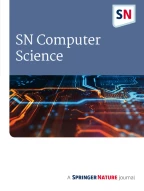Abstract
The growth of fifth-generation (5G) broadband wireless systems presents several issues in terms of network resource allocation. In a collaborative network of mobile devices, the users, and devices are struggled with precious resources. Consequently, it emphasizes the importance of fair and effective resource allocation for the optimum functioning of the networks. Hence, this research presents the Adaptive Golden Eagle optimization based Deep Q Net (Adaptive GEO_DQN) in radio resource scheduling of 5G networks. Moreover, the 5G network is made up of base stations (BS) and user equipment (UEs). The radio resource scheduler at the BS is active in every slot. The BS can collect the data from the UE, like channel feedback data, buffer, hybrid automatic repeat request (HARQs), and allocation log. The resource blocks (RBs) from the current resource blocks group (RBG) have been scheduled by UEs in the current slot. Furthermore, the DQN is used in the UE scheduling, and the Adaptive GEO is utilized in the training of DQN. In addition, the efficacy of the system is validated with respect to the throughput and fairness metrics with the outcomes of 0.921 Mbps, and 0.902 are attained.
Similar content being viewed by others
Data Availability
The dataset utilized and examined in this study can be obtained from the corresponding author upon reasonable request.
References
Al-Tam F, Correia N, Rodriguez J. Learn to schedule (LEASCH): a deep reinforcement learning approach for radio resource scheduling in the 5G MAC layer. IEEE Access. 2020;8:108088–101.
Sengupta A, Alvarino AR, Catovic A, Casaccia L. Cellular terrestrial broadcast. physical layer evolution from 3g pp release 9 to release 16. IEEE Trans Broadcast. 2020;66(2):459–70.
Azimi Y, Yousefi S, Kalbkhani H, Kunz T. Energy-efficient deep reinforcement learning assisted resource allocation for 5G-RAN slicing. IEEE Trans Veh Technol. 2021;71(1):856–71.
Elayoubi SE, Jemaa SB, Altman Z, Galindo-Serrano A. 5G RAN slicing for verticals: enablers and challenges. IEEE Commun Mag. 2019;57(1):28–34.
Filali A, Mlika Z, Cherkaoui S, Kobbane A. Dynamic SDN-based radio access network slicing with deep reinforcement learning for URLLC and eMBB services. IEEE Trans Netw Sci Engg. 2022;9(4):2174–87.
Polese M, Giordani M, Zugno T, Roy A, Goyal S, Castor D, Zorzi M. Integrated access and backhaul in 5G mmWave networks: potential and challenges. IEEE Commun Mag. 2020;58(3):62–8.
Sande MM, Hlophe MC, Maharaj BT. Access and radio resource management for IAB networks using deep reinforcement learning. IEEE Access. 2021;9:114218–34.
Degambur LN, Mungur A, Armoogum S, Pudaruth S. Resource allocation in 4G and 5G networks. Int J Commun Netw Inf Secur. 2021;13(3):401–8.
Comsa I-S, De-Domenico A, Ktenas D (2017) ``QoS-driven scheduling in 5G radio access networks a reinforcement learning approach. In: Proceedings of GLOBECOM Global Communication Conference, pp 17, Dec 2017
Lien S-Y, Shieh S-L, Huang Y, Su B, Hsu Y-L, Wei H-Y. 5G new radio: waveform, frame structure, multiple access, and initial access. IEEE Commun Mag. 2017;55(6):6471.
Tsinos CG, Chatzinotas S, Ottersten B. Hybrid analog-digital transceiver designs for multi-user MIMO mmWave cognitive radio systems. IEEE Trans Cognit Commun Netw. 2020;6(1):310324.
Tham ML, Iqbal A, Chang YC (2019) “Deep reinforcement learning for resource allocation in 5G communications”. In: Proceedings of Asia-Pacific Signal and Information Processing Association Annual Summit and Conference (APSIPA ASC), pp. 1852–1855
Zhou H, Erol-Kantarci M, Poor HV. Learning from peers: deep transfer reinforcement learning for joint radio and cache resource allocation in 5G RAN slicing. IEEE Trans Cogn Commun Netw. 2022;8(4):1925–41.
Fang C, Xu H, Yang Y, Hu Z, Tu S, Ota K, Yang Z, Dong M, Han Z, Yu FR, Liu Y. Deep-reinforcement-learning-based resource allocation for content distribution in fog radio access networks. IEEE Internet Things J. 2022;9(18):16874–83.
Shen S, Zhang T, Mao S, Chang GK. DRL-based channel and latency aware radio resource allocation for 5G service-oriented RoF-MmWave RAN. J Lightwave Technol. 2021;39(18):5706–14.
Vimalnath S, Ravi G. Improved radio resource allocation in 5G network using fuzzy logic systems. J Intell Autom Soft Comput. 2021;32(03):1687–99.
Rkhami A, Hadjadj-Aoul Y, Outtagarts (2021) Learn to improve: a novel deep reinforcement learning approach for beyond 5G network slicing”. In: Proceedings of IEEE 18th Annual Consumer Communications and Networking Conference (CCNC), pp 1–6
Sasaki H, Horiuchi T, Kato S (2017) "A study on vision-based mobile robot learning by deep Q-network". In: Proceedings of 2017 56th Annual Conference of the Society of Instrument and Control Engineers of Japan (SICE), pp 799–804
Mohammadi-Balani A, Nayeri MD, Azar A, Taghizadeh-Yazdi M. “Golden eagle optimizer” A nature-inspired metaheuristic algorithm. Comput Indus Eng. 2021;152:107050.
AlQahtani SA. Cooperative-aware radio resource allocation scheme for 5G network slicing in cloud radio access networks. Sensors. 2023;23(11):5111.
Acknowledgements
The authors acknowledged the REVA University, Bangalore, Karnataka India for supporting the research work by providing the facilities.
Funding
No funding received for this research.
Author information
Authors and Affiliations
Contributions
This research endeavor owes its success to the collaborative efforts and valuable contributions of all authors involved.
Corresponding author
Ethics declarations
Conflict of Interest
No conflict of interest.
Additional information
Publisher's Note
Springer Nature remains neutral with regard to jurisdictional claims in published maps and institutional affiliations.
This article is part of the topical collection “Advances in Computational Approaches for Image Processing, Wireless Networks, Cloud Applications and Network Security” guest edited by P. Raviraj, Maode Ma and Roopashree H R.
Rights and permissions
Springer Nature or its licensor (e.g. a society or other partner) holds exclusive rights to this article under a publishing agreement with the author(s) or other rightsholder(s); author self-archiving of the accepted manuscript version of this article is solely governed by the terms of such publishing agreement and applicable law.
About this article
Cite this article
Shilpa, V., Ranjan, R. Radio Resource Scheduling in 5G Networks Based on Adaptive Golden Eagle Optimization Enabled Deep Q-Net. SN COMPUT. SCI. 5, 517 (2024). https://doi.org/10.1007/s42979-024-02856-8
Received:
Accepted:
Published:
DOI: https://doi.org/10.1007/s42979-024-02856-8
